Recognizing the Importance of Support Staff in a Student-Centered School

Student support staff (school counselors, case managers, mentors, social workers etc.) are rarely central to education reform conversations, but in the era of personalization, their knowledge and expertise can greatly benefit the changing classroom. Students and teachers can rely on these staff to bridge social/emotional strategies with academic learning. Emotions, research shows, direct students’ learning… Read More ›
Generator School Network
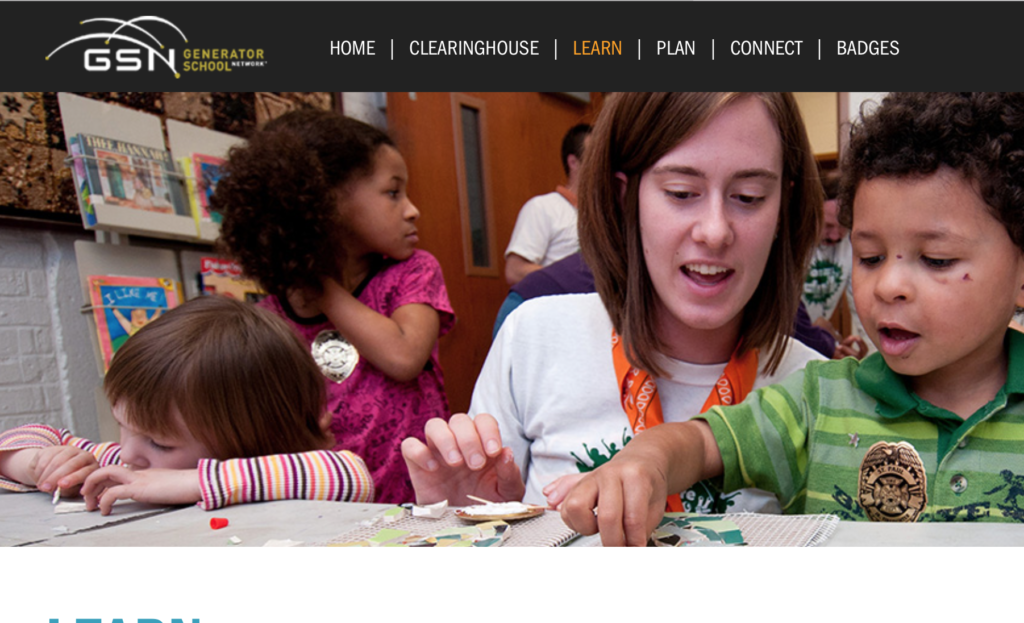
The online community, managed by the National Youth Leadership Council, is for educators and youth interested in service-learning experiences that allow students to apply classroom knowledge and skills to a real world community need. This free resource includes a large number of tools, research, and online learning communities. Of particular interest is the Generator, a… Read More ›
“Paying attention?” an App Asks – Helping Kids Monitor Their Own Classroom Behavior
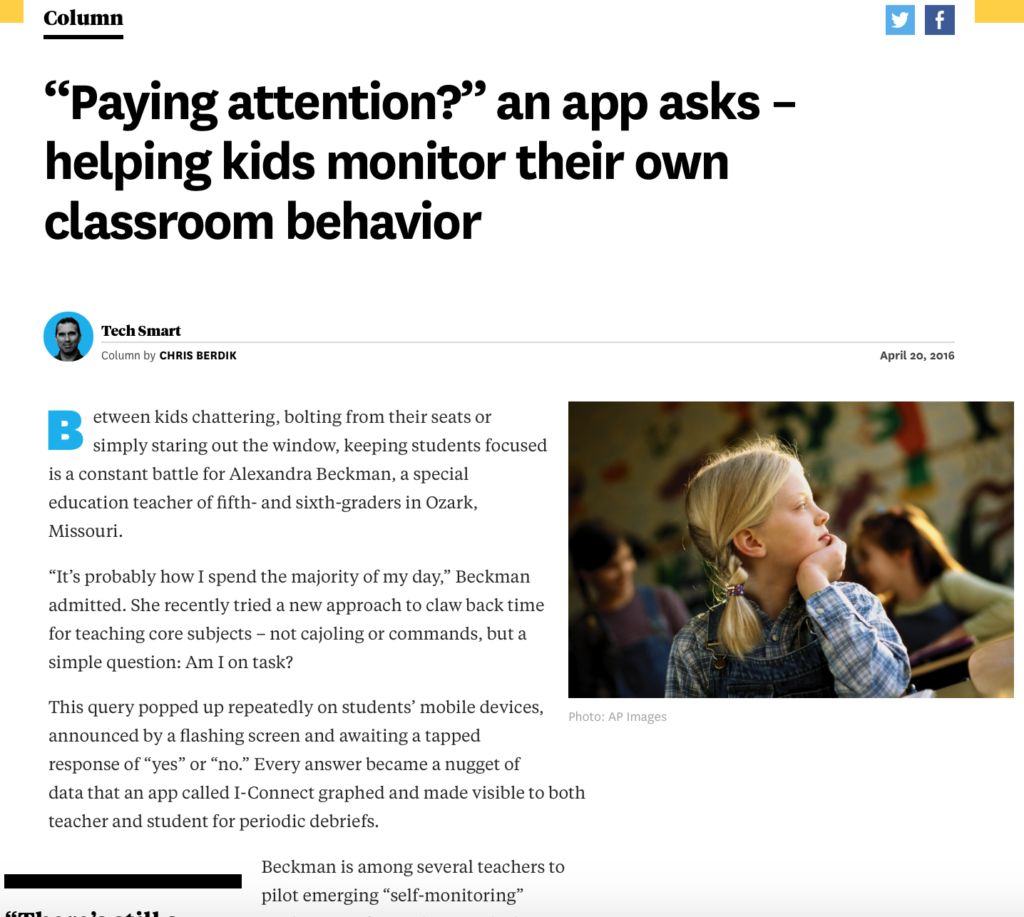
This article describes an app called I-Connect designed to help students monitor their motivation and attention to tasks. The article describes how the app is being used by students who need additional supports to help stay on task. The app can be customized to check in once about homework or punctuality or can send reminders… Read More ›
Six Seconds: Emotional Intelligence Network

This organization is committed to helping people improve emotional intelligence (EQ), the ability to tune in, connect, and respond. The organization offers training and tools to measure and improve EQ. Six Seconds The Emotional Intelligence Network offers measurement tools, applications, games, and organizational metrics to better understand emotional strengths and weaknesses. Of interest is the The… Read More ›
ASCA Mindsets & Behaviors for Student Success: K-12 College- and Career-Readiness Standards for Every Student

This set of standards from the American School Counselors Association describes the knowledge, skills, and attitudes students need to achieve academic success, college and career readiness, and social/emotional development. The standards draw from a wide array of educational research, best practices, and existing standards. The 35 standards are divided into mindsets and behaviors counselors should… Read More ›
Instructional Strategies for Library and Information Professionals

This online course was designed as a graduate course offered at Indiana University-Indianapolis, but all of the online videos and class materials are available free to anyone wishing to learn more about information inquiry and learner-centered instructional strategies. The course is divided into 15 sessions. Each session includes a 15- to 20-minute recorded presentation and… Read More ›
Common Instructional Framework
The Common Instructional Framework, developed by Jobs for the Future, identifies six strategies for powerful teaching and learning. Forming the basis of a coherent college-preparatory curriculum, these instructional strategies succeed because they engage all students in learning and require them to take an active role in their education. The six strategies to build college readiness… Read More ›
What’s Next for Maker Education

This guide, “What’s Next for Maker Education” was developed by EdSurge and explores a range of maker-related topics, including: How can we help making become more equitable and inclusive? How can maker education embrace traditional technology, including computer science? What are the benefits of a maker education, and how do we measure them? Included in the guide are also tips… Read More ›
The Culture of Data Use Workshop Toolkit

The Culture of Data Use Workshop Toolkit helps school and district teams apply research to practice as they establish and support a culture of data use in their educational setting. The field-tested workshop toolkit guides teams through a set of structured activities to develop an understanding of data-use research in schools and to analyze examples… Read More ›
What You Need To Know: A Guide To Understanding The Pittsfield School District Redesign
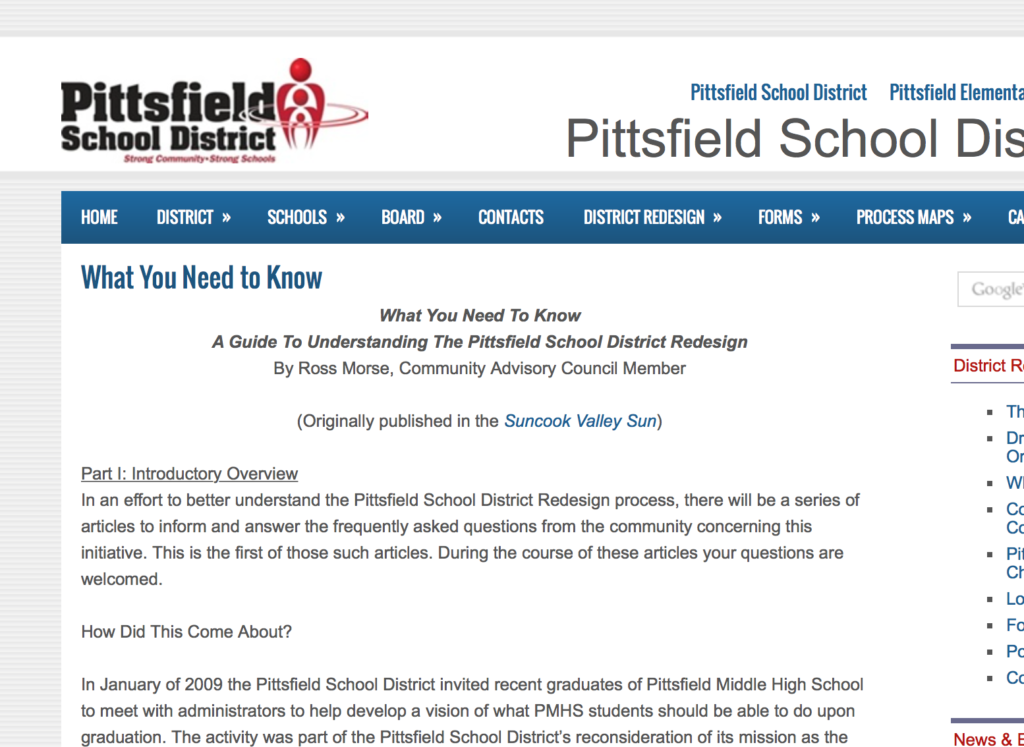
This article outlines the plans of the Pittsfield School District to redesign teaching and learning to become more student centered. The document introduces the concept of student centered learning. It also provides detailed descriptions of the district’s plans to provide multiple pathways to learning through in classroom, co-curricular, and non-traditional opportunities such as authentic assessment, flexible… Read More ›
Pittsfield School District Logic Model
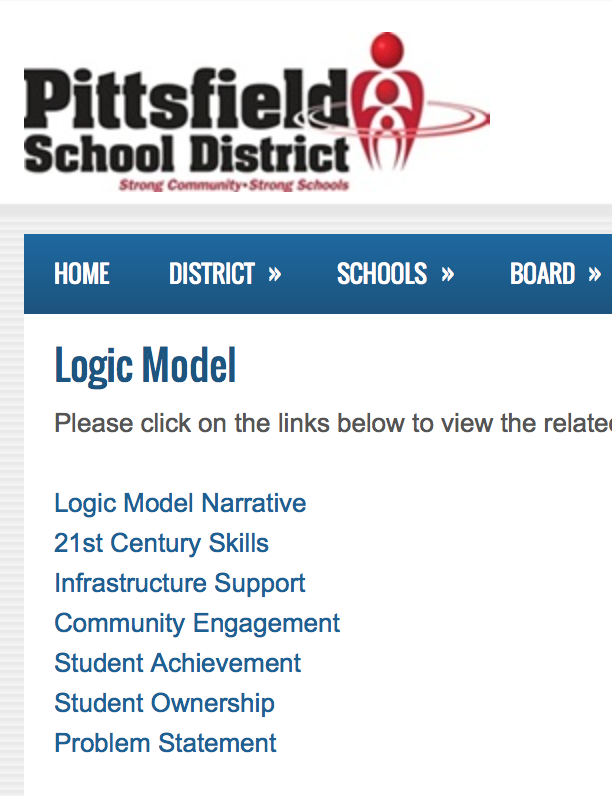
This working document lays out the roadmap for a shift to student centered learning in Pittsfield, New Hampshire. The logic model looks at several areas for improvement: development of 21st century skills such as civic responsibility, study skills, and social-emotional learning; systems and infrastructure support for student centered learning; community involvement; student achievement; and student… Read More ›
What is Flipped Learning: Flipped Learning Definition
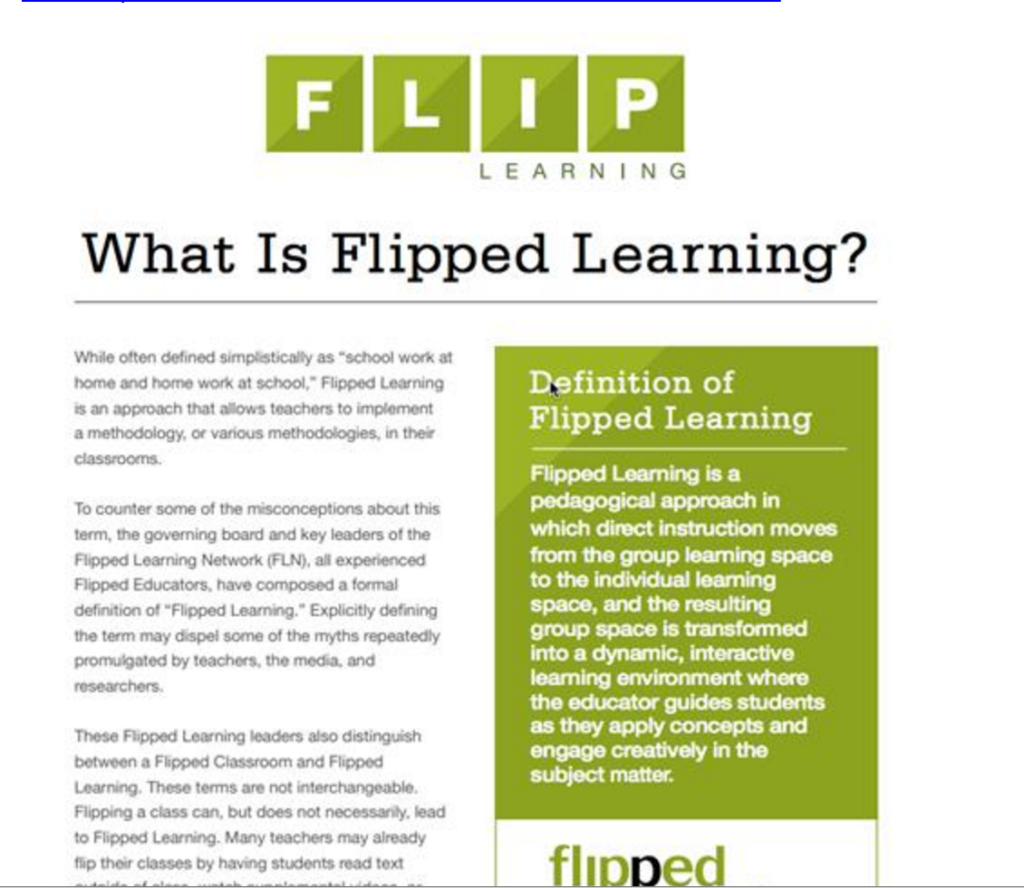
This two page overview developed by the Flipped Learning Network gives an excellent definition of flipped learning, suitable for introducing the concept to any audience. It lays out the components of successful flexible learning, detailing each of the four pillars: creating a flexible learning environment, shifting to a student-centered learning culture, providing intentional content to… Read More ›